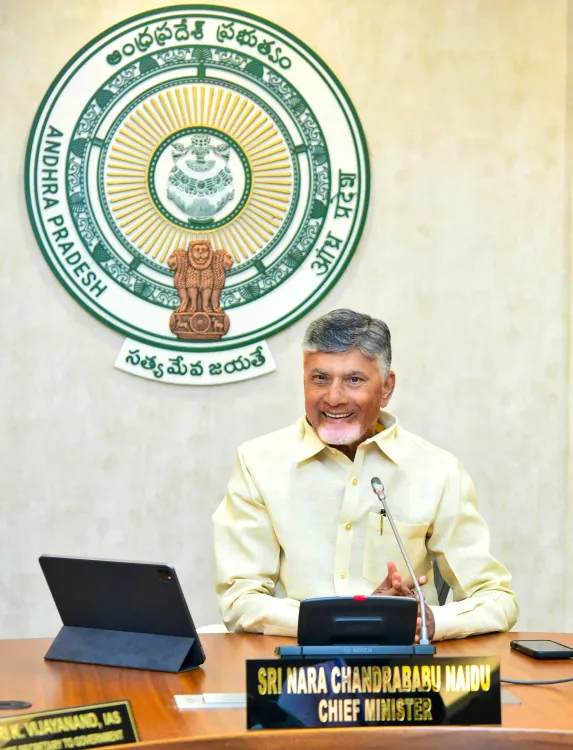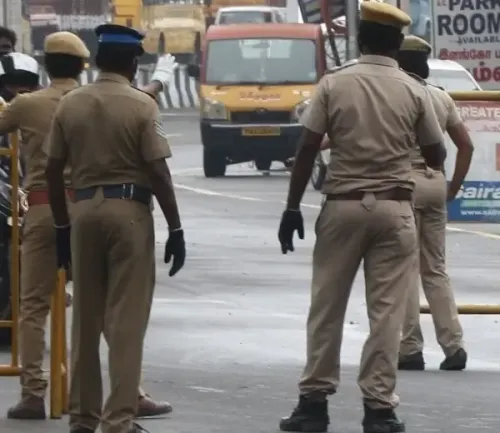Has the Andhra Pradesh Cabinet Approved Free Bus Travel for Women?

Synopsis
Key Takeaways
- Free travel for women on APSRTC buses launches August 15.
- Eligible individuals must show Aadhaar, Voter, or Ration cards.
- Scheme estimated to cost Rs 162 crore monthly.
- Increased emphasis on women's safety in public transport.
- Additional 3,000 electric buses to be purchased this year.
Amaravati, Aug 6 (NationPress) – The Andhra Pradesh Cabinet convened on Wednesday and officially sanctioned a scheme allowing free travel for women on APSRTC buses starting August 15. This decision was made during a Cabinet meeting led by Chief Minister N. Chandrababu Naidu, fulfilling another commitment made during last year's elections.
The initiative, part of the government's “Super Six” election promises, will see the launch of the “Stri Shakti” free bus travel scheme on Independence Day.
The financial implications of this initiative are significant, with an estimated cost of Rs 162 crore monthly and around Rs 1,942 crore annually, benefiting approximately 26.95 lakh individuals each day within the state.
Among the state's total population of 5.25 crore, there are 2.62 crore women. This scheme will allow women, girls, and transgenders residing in the state to travel free of charge across various locations.
Eligible travel options include services such as PalleVelugu, Ultra Pallevelugu, City Ordinary, Express, and Metro Express. To utilize this service, individuals must present valid identification, which can be any of the following: Aadhaar, Voter, or Ration cards.
However, the initiative does not extend to non-stop interstate bus services, contract carriage services, chartered services, or package tours.
Beneficiaries will have access to 6,700 buses, representing 74 percent of the total APSRTC fleet.
This year, the government plans to acquire an additional 3,000 electric buses, with another 1,400 electric buses slated for purchase in the next two years.
The government has emphasized that, while implementing this scheme, the safety of women and girls will be prioritized. This will include providing body cameras to female conductors and installing CC cameras on buses.
With the introduction of this scheme, an additional 10.84 lakh people are expected to begin using public transportation, complementing the 16.11 lakh current users. Annually, around 1.42 crore women are projected to benefit from the free bus service.
Furthermore, the Cabinet extended the ban on the Communist Party of India (Maoist) and its affiliated organizations, labeling them as unlawful associations under the A.P. Public Security Act, 1992, for an additional year.
The government noted that even with the ban, the CPI (Maoist) continues to exploit opportunities in Andhra Pradesh, engaging in destructive behaviors and targeting citizens, particularly in the Alluri Sitarama Raju district.
Additionally, the Cabinet approved the AP Land Incentive for Tech Hub (LIFT) Policy (4.0) for 2024-2029, which aims to allocate land to IT/ITeS companies and IT park developers at a nominal rate.
Finally, the Cabinet endorsed the 2025-28 Bar Policy, allowing for bar allocations through a lottery system when at least four applications are received, with business hours extended from 10 a.m. to 11 p.m. and reserving 10% of bars for the welfare of toddy workers at reduced fees.








